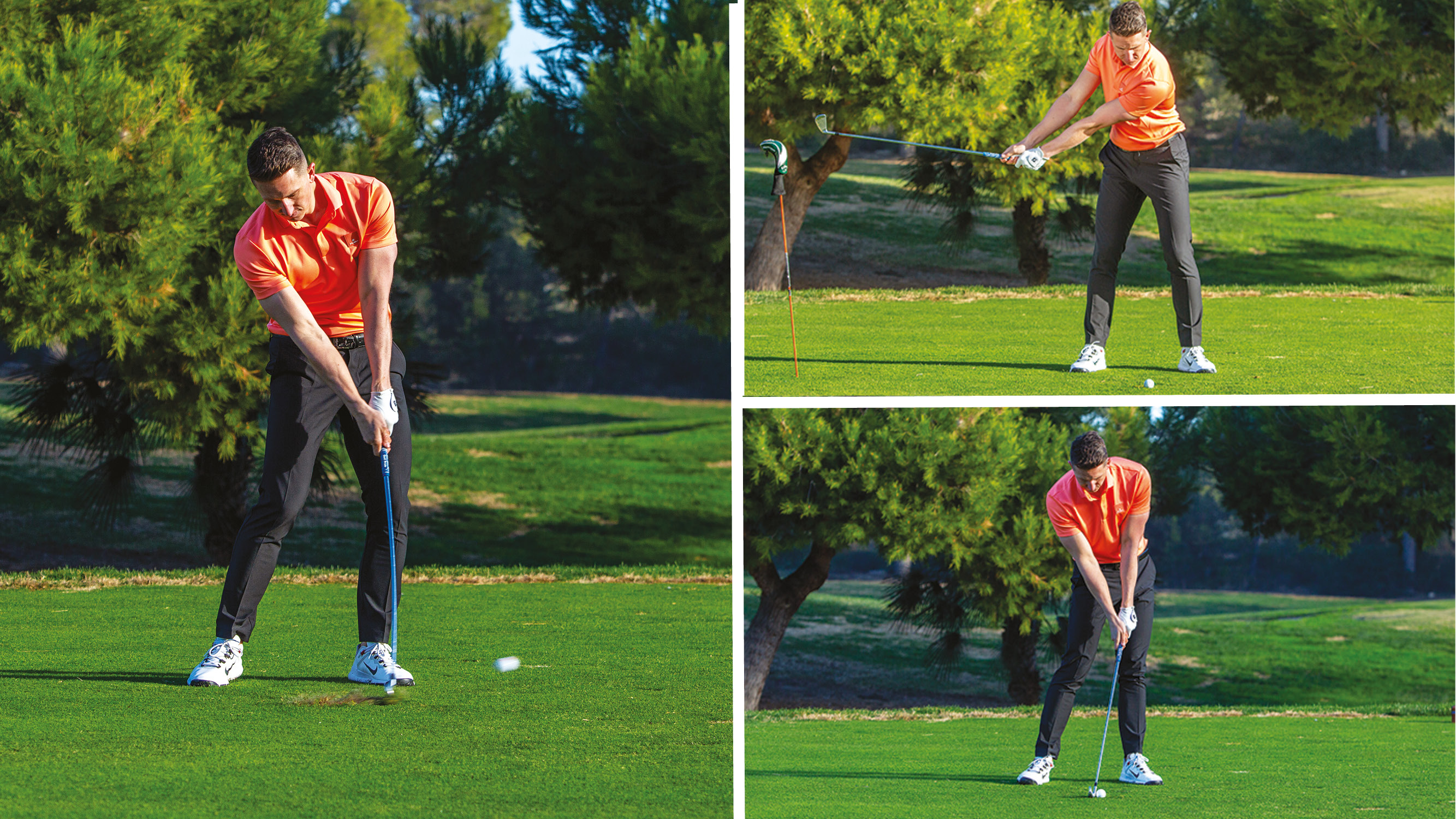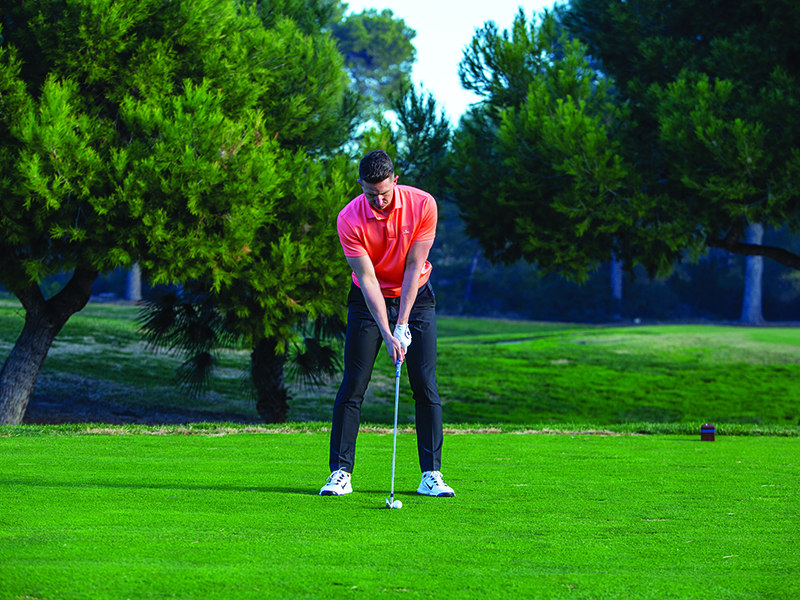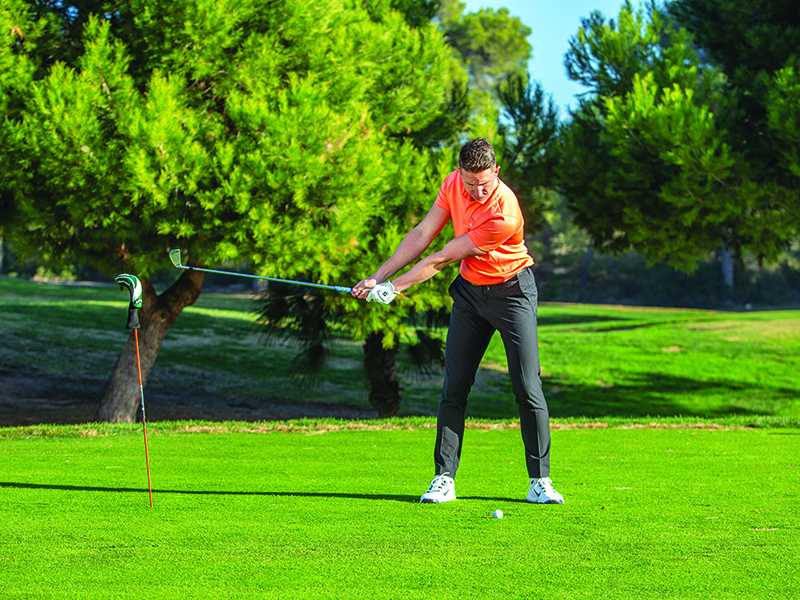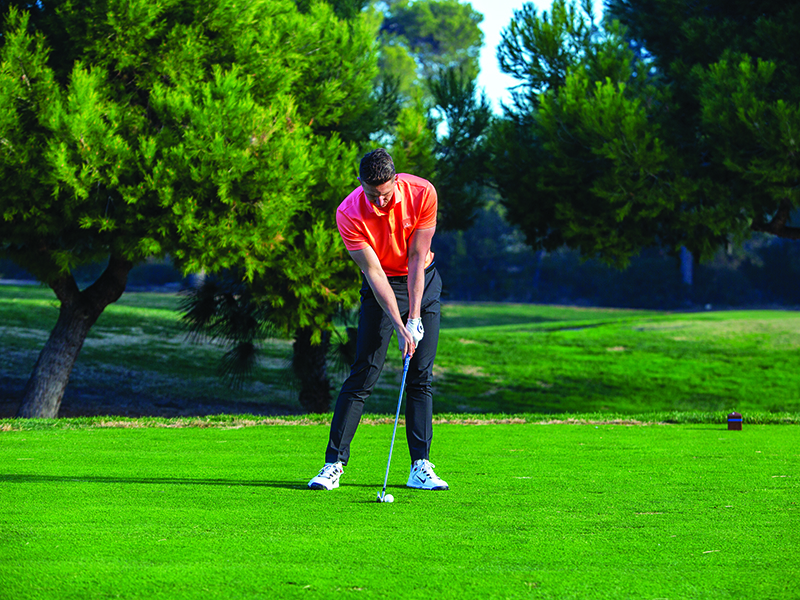How To Hit Long Irons
Understanding how to hit long irons will drastically improve your ball striking and help you to find more greens in regulation...


Many amateur golfers, especially those who are mid- to high-handicappers, often feel anxious about hitting long irons, but that fear doesn't have to hold you back.
It goes without saying that having the best irons in your bag is a great way to start, but whether you need to reach for your 3-, 4- or 5-iron, we want you to feel empowered and confident in your ability to produce the right shot at the right time.
With that in mind, we sought the guidance of Golf Monthly Top 50 Coach Gary Munro, who shared three expert tips on how to improve your ball striking with long irons...
1. Angle Of Attack
With a mid-iron, the angle of attack should be around minus 4-5˚ and with a long-iron minus 1-2˚, so you need to make a few changes in your set-up and swing. First, let’s look at ball position – the common mistake is to have the ball too much in the centre of the stance.

It needs to be further forward, around two ball widths inside your lead ankle. This naturally sets the sternum just behind the ball, which will make the angle of attack into the ball a little bit shallower. This gives you a better chance of launching the ball at the correct height.
2. The Takeaway
Next comes the need for a slightly wider base to give you a little bit more clubhead speed. One of the biggest flaws in the takeaway is that the club comes too much on the inside and around, causing a narrow arc that leads to a lack of clubhead speed.

What you want is a wider takeaway where the club is travelling further away from your body. Use an alignment stick placed behind the ball and try to imagine the club stretching out to hit it in the takeaway. This encourages a wide arc to help generate lots of clubhead speed and the correct angle of attack into the ball.
Subscribe to the Golf Monthly newsletter to stay up to date with all the latest tour news, equipment news, reviews, head-to-heads and buyer’s guides from our team of experienced experts.
3. Impact
As for impact, the differences from set-up are 4-6ins of shift towards the ball, some rotation of the hips and the hands now slightly ahead of the ball. There’s now more pressure on your left side and, naturally, the right foot will roll inwards as your weight shifts.

Finally, we want good extension through to the finish. You don’t want your body to stay down and low, but rather to have your belt buckle and chest pointing up towards the sky with a lovely high finish, very much like Rory McIlroy.

Location: Pitch Golf London & Bedfordshire Golf Club
Gary is Director Of Golf at Pitch London. He is involved in the launch of the next Pitch site in Soho, which will open up the game to all levels. He is a big believer in equality and showcasing how fun golf can be for everyone. Gary has also coached at county level, and as County Manager has overseen a number of league wins for the U18s (Bedfordshire).
Teaching philosophy:
I don’t have a set model of swing that I coach and force on people - but impact and ball flight are everything, so I work it back from this. What impact characteristics does this player need to hit the shots and shoot the best score?
Advice for practice:
Split your practice into three sections: technical practice, skill practice (working on hitting different shots, for example, high, medium, low shots and shaping the ball) and finally pressure practice.
Students learn best when…
They self-discover. I don’t believe in coaches jumping on a player shot by shot giving more and more conflicting information, which can become confusing. I like my players to learn about their tendencies. I ask questions, allowing them to learn when they move well and why it’s good. I do the same for bad shots and ask them what they think caused that. Let them self-evaluate an answer so they develop the skill.